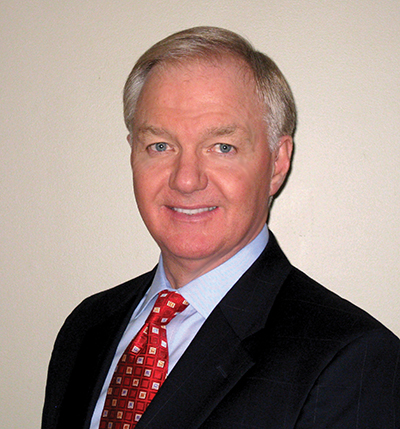This is a sponsored supplement, which first appeared in Business NH Magazine's Health Care Handbook in the April 2021 issue.

Think about the benefits of having two jobs: additional income, an expanded professional network, a wider social circle. Although it’s an increased time commitment, a second job can have real personal and financial health benefits.
What if your second job wasn’t necessarily a choice? What if it can consume more than 39 hours per week(*1) but offers no additional income? What if it breaks your social circle rather than expanding it, because of the enormous demands and the emotional drain? Now, consider that this job has such a personal connection to you that you’re unwilling to walk away. Your dedication drives you forward, it consumes your thoughts, your time, and your energy. This is the story of a family caregiver.
There are 53 million unpaid family in the United States. This is an increase of more than 20 percent since 2015(*2), and this upward trend is expected to grow as our population ages. While the majority of family caregivers are Generation X or Millennials, we can’t ignore the 6 percent of Generation Z that’s stepping into primary or secondary caregiving roles(*1). Youth ages 6-24 are being asked to balance school and the demands of caregiving at a time when, according to Cigna’s 2020 research, that age group is already challenged with resilience and feelings of belonging.
Everybody’s caregiving journey is unique. There are caregivers in every geography and every age, racial, and socioeconomic group. In New Hampshire there are more than 177,000 family caregivers that provided an estimated 140 million hours of care to parents, spouses, partners and friends, according to a recent AARP report(*2).
The impact of these journeys on individuals, employers, and the community can be profound.
Statistics show a deterioration in personal health and professional productivity that carries forward to the workforce and the economic vitality of employers. By the numbers:
• Caregivers are twice as likely to suffer from depression(*3)
• 61% of family caregivers are employed(*1)
• 70% of working caregivers suffer work-related difficulties due to their dual roles(*4)
• Employers pay about 8 percent more in health care costs for family caregivers(*3)
The COVID-19 pandemic has only made this situation worse.
Cigna’s mission is to improve the health, well-being, and peace of mind of those we serve by making health care simple, affordable, and predictable. As an innovative health service company, we are working to make health care better for all.
One way we are advancing health is through an increased focused on caregivers, because we understand the toll that caregiving can take on both the body and the mind. Feelings of isolation, depression, and fatigue reported by caregivers can impact the individual’s relationships, health, career and finances. We also recognize that caregivers by nature are multi-taskers, manage ambiguity endlessly, and act with speed and purpose. These are the very qualities that employers value in their employees.
Cigna has been a leading voice in New England when it comes to supporting the whole person health of family caregivers and highlighting their stories. Through our sponsorship of the documentary Sky Blossom, a salute to the millions of children and Millennials stepping forward as unpaid caregivers, we’re supporting access to these important stories in the community.
Our efforts are aimed at educating and creating awareness of caregivers’ needs, sharing best practices for empowering those caregivers in the workforce, and calling on businesses to join the discussion. Through Cigna-led solutions and our dedicated team in New England, we will continue to partner with employers to help define and execute strategies that support the total health of their business, their employees, and the communities where they live and work.
If you have questions about how we could help your business, or would like to learn more, please contact us at cignanewengland@cigna.com.
*1. AARP and National Alliance for Caregiving, Caregiving in the U.S. 2020 research report
*2. Susan C. Reinhard, Lynn Friss Feinberg, Ari Houser, Rita Choula, and Molly Evans AARP Public Policy Institute, Valuing the Invaluable: 2019 Update Charting a Path Forward, AARP, Nov. 2019
*3. The National Business Group on Health, The Impact of Caregiving on Work, 2018.
*4. National Alliance for Caregiving and AARP. (2015). Caregiving in the U.S.
 Mark Butler (pictured) is president of Cigna New England. He’s responsible for Cigna’s employer, hospital, and physician relationships across five New England states. Under Mark’s leadership Cigna’s community engagement has expanded significantly to improve the health, well-being, and peace of mind for countless local residents.
Mark Butler (pictured) is president of Cigna New England. He’s responsible for Cigna’s employer, hospital, and physician relationships across five New England states. Under Mark’s leadership Cigna’s community engagement has expanded significantly to improve the health, well-being, and peace of mind for countless local residents.

 Current Issue - April 2024
Current Issue - April 2024